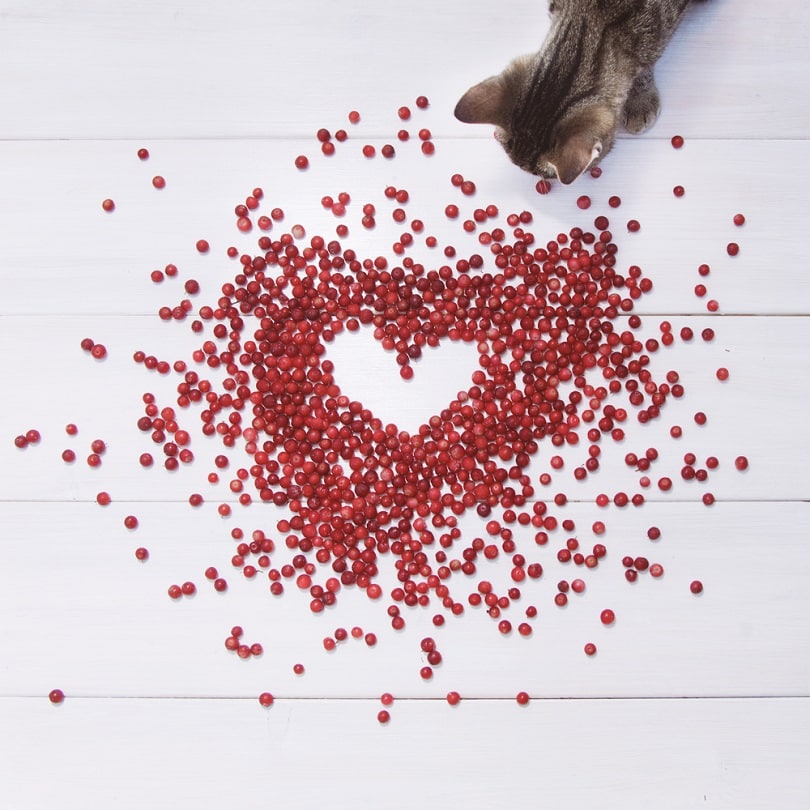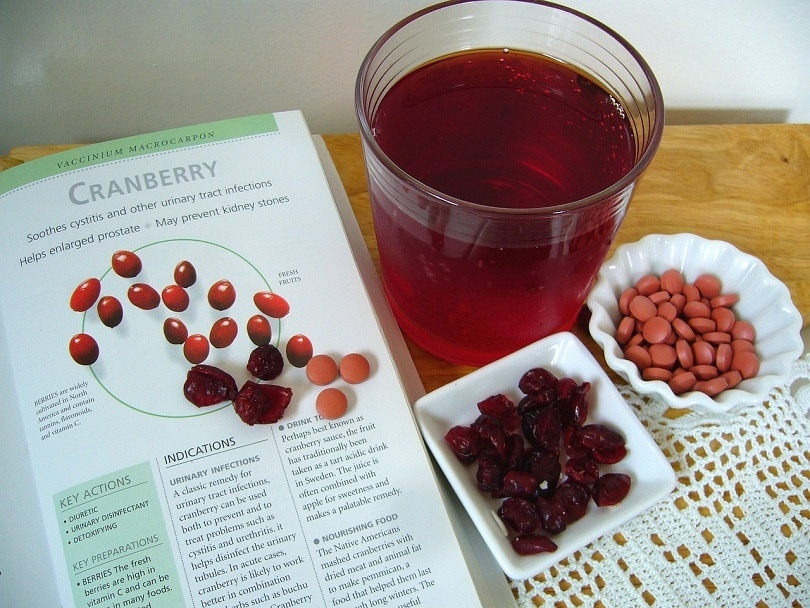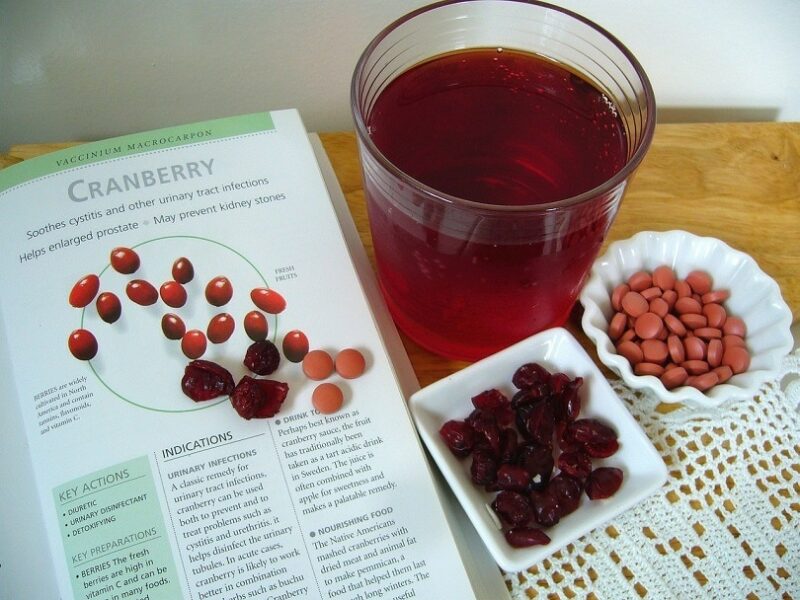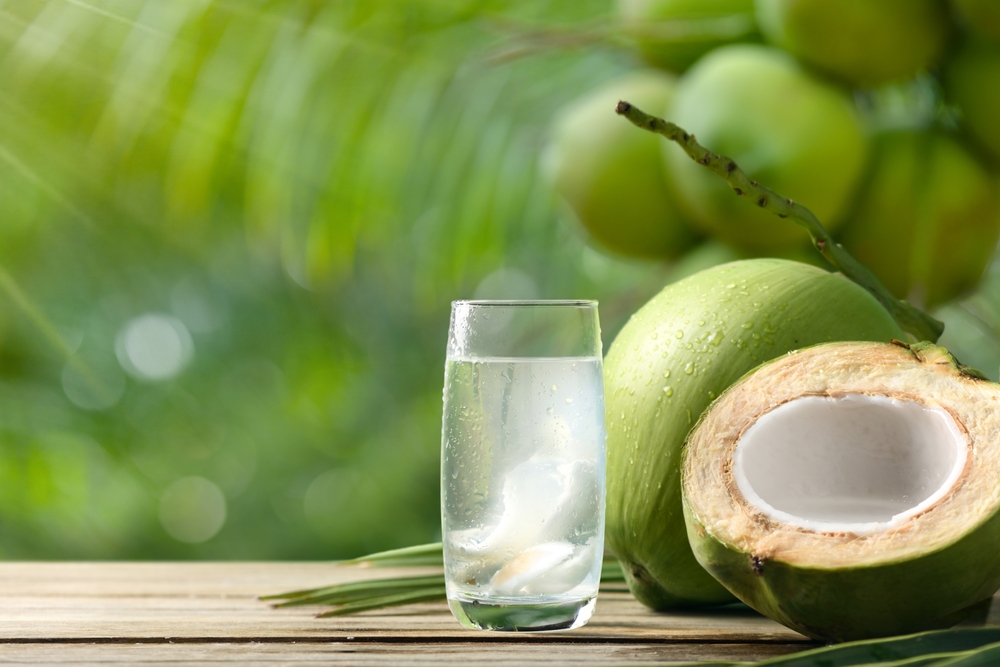If you’re like most people, you have eaten your fair share of cranberries throughout the years — even if just on Thanksgiving. You have likely heard that cranberries are a great source of nutrients and can help keep your gut healthy too. Not everyone likes the taste of fresh tart cranberries. If you’re not a fan of fresh cranberries, you may choose to drink cranberry juice or to sweeten cranberries with sugar so they’re more enjoyable—whatever it takes to reap the nutritional rewards of cranberries!
Because they’re so good for humans, you might wonder whether cranberries are suitable for cats, too. And is cranberry juice safe for cats? This is a great question, and the short answer is no, cats should avoid drinking cranberry juice, as it has a lot of added sugar and, oftentimes, artificial sweeteners that may be dangerous for cats. Fresh, raw cranberries are a different story, and they are safe for cats to eat. Here’s what you should know about cranberry juice and cranberries in general and why you should keep the juice to yourself.
Before changing your cat’s diet or introducing new ingredients or supplements that they haven’t eaten before, especially when it comes to human food, make sure to consult your veterinarian first. Every cat is different and requires an individual approach to nutrition, depending on their age, health, level of activity, and medical history. The guidelines offered in our article have been fact-checked and approved by a veterinarian but should be used as a mere guide on food safety, rather than an individual nutrition plan.
The Health Benefits of Feeding Cats Cranberries
While cats are obligate carnivores and don’t need any fruits or vegetables added to their diet to stay healthy, there are a few health benefits that cats can reap when they are fed cranberries as a snack or treat.
Cranberries are a great natural source of fiber, which can support the digestive system. They are also an excellent source of vitamins C and K and minerals like manganese and copper.

Cats need vitamins and minerals to thrive, and they typically get them from the meat-derived food they eat or produce them themselves, like vitamin C. Cranberries should be fed in moderation as a snack or treat since they cannot in any way replace a balanced and complete diet.
Cranberries as a Home Remedy
Some people use cranberries as a home remedy for bladder issues such as urinary tract infections. Cranberries are said to acidify urine when consumed, which may help reduce bacterial numbers, but they also produce compounds called proanthocyanidins that make it harder for certain types of E.coli to adhere to the urinary bladder wall.1
Cats do not suffer from bacterial cystitis nearly as often as humans do, and there are limited studies on the effects of cranberries on their urinary health, mainly based on research in a small number of cats.2
It’s important to promptly consult a veterinarian if your cat is experiencing any urinary signs since they can worsen quickly and will always need veterinary attention. Although cranberries may benefit humans with UTIs, you should not use them to treat feline illnesses.
Cranberry Serving Suggestions
Fresh, raw cranberries are safe for your cat to eat, but it’s better to chop them into smaller pieces, as some cats may attempt to swallow them whole, posing a risk of choking. However, they may choose to play with them. Due to their taste, many cats may not want to eat a fresh cranberry. You can blend one or two cranberries with a little water to create a plain sauce, then offer a teaspoon of the sauce with your cat’s food to see if they will eat it. If they don’t like cranberries, you shouldn’t force them to eat them.
Cats can also eat dry cranberries, but they have less moisture content and more sugar. You can even cook cranberries for your cat, but don’t add any ingredients except water. If your cat doesn’t enjoy consuming cranberry products and you are trying to treat or prevent a bladder problem, you can feed them commercial treats that feature cranberries in the ingredients list.
However, it’s crucial to speak to your vet since urinary issues in cats require adequate medical assessment and treatment, and the condition may worsen while you’re waiting for cranberries to take effect. Also, cranberries should be cautiously given to cats with oxalate crystals or stones.
As we discussed, currently, there are very few studies on the benefits of cranberries in cats with urinary issues, and most of the claims are extrapolated from human medicine, but even then, it seems cranberries have an effect against only certain strains of E. coli bacteria, and cats don’t often suffer with a bacterial UTIs.
If you aren’t trying to treat or prevent a urinary problem and your cat is not into cranberry products, don’t sweat it. They’ll still maintain their health and happiness as they age.
 Conclusion
Conclusion
Cranberries can be a healthy addition to your cat’s diet if offered as an occasional treat or snack, but cranberry juice is not suitable for cats. It’s rich in additives, sugar, and artificial sweeteners, some of which are dangerous for cats.
Cats may benefit from some cranberry products but don’t need them to stay healthy. So, if you want to, try feeding your cat fresh cranberries and see what happens. If they don’t like them, plenty of healthy alternatives are available. Has your cat ever eaten a cranberry? If so, how did they react to it? We would love to hear about your experiences in the comments section below.
Featured Image Credit: Shirley810, Pixabay












